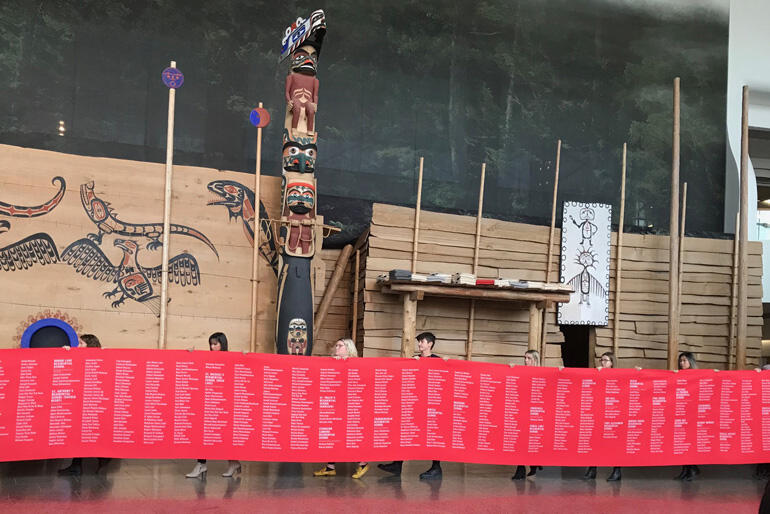
Indigenous Christians from the Anglican Indigenous Network and across the member churches of Te Rūnanga Whakawhanaunga i ngā Hāhi (the Māori Ecumenical Council of Churches) have released a statement in support of indigenous Canadians, following new revelations of fatal abuse of indigenous children in Canada’s Government and church-sponsored historic residential school system.
The solidarity statement comes on behalf of indigenous Anglicans in the USA (Turtle Island), Hawai’i, Australia and Torres Strait Islands and from Te Runanga Whakawhanaunga i ngā Hāhi churches which include: Te Hāhi Mihinare ki Aotearoa, ki Niu Tireni, ki nga Moutere o te Moana nui a Kiwa, (Anglican) Te Hāhi Katorika ki Aotearoa (Catholic), Te Hāhi Weteriana o Aotearoa (Methodist), Te Hāhi Perehipitiriana o Aotearoa (Presbyterian) and Te Hāhi Iriiri o Aotearoa (Baptist).
The full Anglican Indigenous Network(AIN) and Te Rūnanga Whakawhanaunga i ngā Hāhi solidarity statement follows below.
Statement of Solidarity with the Indigenous Peoples of Canada
We, Te Rūnanga Whakawhanaunga i ngā Hāhi o Aotearoa (Māori Ecumenical Council of Churches)1 and the Anglican Indigenous Network (AIN)2 make this statement in solidarity with the Indigenous Peoples of Canada.
We extend our heartfelt sympathies and aroha (love) to the indigenous families and communities affected by the discovery of unmarked burial sites at the Indian Residential Schools in Kamloops, Cranbrook, Brandon and Marieval (Cowessess).
We acknowledge and condemn the actions of successive Canadian governments that facilitated (through residential schools) the deliberate and intentional eradication of indigenous culture.
We denounce the colonial policies that were designed to forcibly assimilate indigenous peoples into white, western society.
We acknowledge and deplore the role that the Christian Churches played particularly the Roman Catholic Church and Anglican Church in the separation of thousands of indigenous children from their families and the exposure of those children to horrific abuses and inter-generational trauma.
We recognize the symbolic acts of apology from the government and Christian Churches (for example the apology by the Anglican Church in Canada, as well as the ongoing work of reconciliation by the church3) as a positive step toward restoring indigenous faith and as a means of moving toward justice and reconciliation.
We call on Pope Francis to make a formal apology for the atrocities committed at Catholic residential schools.
We commend and affirm the survivors of residential schools who have bravely shared their stories.
We support and affirm the Truth and Reconciliation Commission of Canada and the ‘94 Calls to Action’ and call on the Canadian government to urgently finish the work of implementing these actions.
We as Māori, as Tangata Whenua, as Mihinare, as Hāhi whānui we listen, we sit, we speak, we stand, in solidarity with the Indigenous Peoples of Canada.
1. Te Rūnanga Whakawhanaunga i ngā Hāhi is the Māori ecumenical council of churches in Aotearoa New Zealand. Established in 1982, our mission is to serve the ecumenical movement, uplifting the prophetic voice of Māori communities of faith, and promote Māori unity, witness and service in our churches and communities.
2. The Anglican Indigenous Network (AIN) is an authorised network of the Anglican Communion. It is a forum for bringing together Indigenous Anglicans worldwide to share concerns in ministry and mission. It currently represents indigenous Anglicans from Canada, USA, Hawai’i, Australia and Torres Strait Islands and Aotearoa New Zealand.
3. Refer to The Anglican Church of Canada’s apology for residential schools, https://www.anglican.ca/tr/apology/

















Comments
Log in or create a user account to comment.